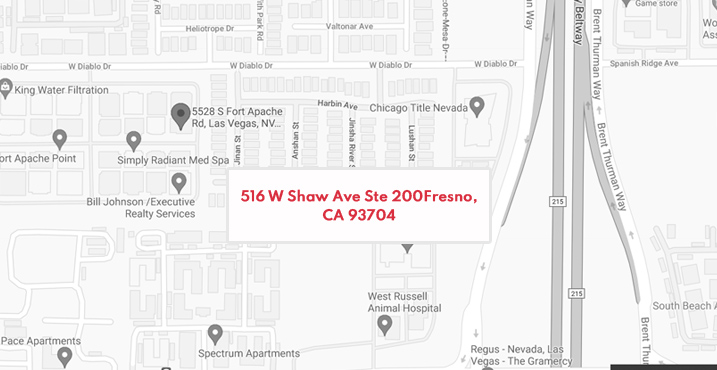What Exactly Is a Qualified Personal Residence Trust?
A QPRT may be a foreign term to some people, but it is frequently used in estate plans. As per Cornell Law School, much applies to the formation of a QPRT, but essentially, a qualified personal residence trust (QPRT) is a form of an irrevocable trust that allows you (as the trustor) to move any of your real primary or secondary homes out of your estate. This is done to transfer this property to your future beneficiary with gift tax savings; it can be a significant benefit in many cases.
Additionally, as the current homeowner, you can remain in your home with “retained interest” until the date you specify. After this “future date” has been reached, the remaining interest and home ownership are transferred to your beneficiary.
With most real estate, during the length of this irrevocable Trust, your property’s value may undoubtedly increase. Because you, as the homeowner, have a partial interest in the real property, the “gift value” of the property is almost always calculated at a lower rate than what the fair market real estate value may have appreciated.
Due to this significant fact, when you “gift” the property, the value of the gift tax is calculated at a lowered rate.
Also, your gift tax could be lowered through a unified credit: This sets a dollar amount you can give to beneficiaries before any estate-related taxes are calculated and applied.
However, there are many critical facts when planning your QPRT, and the advice and professional guidance of your Fresno estate planning lawyer will be invaluable in drafting it correctly.
Although there is no limit on a QPRT’s term, it should always be drafted so that it expires before you pass away. If not prepared with this fact in mind, your property may revert to the estate and could be subject to estate taxes and significantly more gift taxes. Therefore, your QPRT should be drawn up to the best of your ability so that the Trust expires before you die.
Under What Circumstances Should I Consider a QPRT?
To qualify whether a QPRT is of benefit to you, you first need to ask yourself some questions, such as:
- Do I want to gift my home to my relatives or children without its value being included in your estate? This fact pertains to state and federal taxes.
- Do you want to retain the ability to gift my property to my children or beneficiaries while still holding the ability to live in it and have some ownership interest for a specific time?
- Do I consider my primary residence a “legacy” for future generations rather than just a way to gather wealth and then liquidate it?
There may be other options that you might consider when discussing a QPRT with your professional estate planning lawyer, but how you answer the above questions may, at the least, give you insight as to whether a Qualified Personal Residence Trust is suitable for you, and your goals after you’re gone.
What Are Some Examples of Benefits In Forming a Qualified Personal Residence Trust?
As the Grantor and creator of the QPRT, you commonly form it to reduce your estate taxes significantly. Your primary residence (and possibly secondary residence) may be some of your estate’s most significant and valuable assets. By removing them from your estate, you may be able to reduce the taxable estate by a substantial amount.
However, there are other benefits of a QPRT that may pertain to your unique situation, such as:
- QPRTs will allow you (as the Grantor) to leave your property to your children or relatives with the additional benefit of reducing their value for gift tax purposes. Remember that your property can only be owned by your beneficiaries at a future date; thus, the IRS discounts it. Essentially, this “freezes” the property’s value at the specific time it was transferred into the QPRT.
- If you live past the expiration of the Trust (which you should), the total market value (including its appreciation) is removed from your estate.
- As the Grantor, you always keep a partial interest in the property placed in the QPRT. This allows you to possess, use, and utilize the property throughout the trust term. When the QPRT term expires, your beneficiaries can always rent the property back to you so it is kept out of your estate.
- It’s also beneficial that you, as the Grantor, can name yourself as the Trustee of the QPRT.
Once again, every estate plan differs, and by obtaining the qualified and skilled advice of an experienced estate law firm, you can fully determine if forming a QPRT fits into the estate plan you and your lawyer build.
What Are Some Other Key Points I Should Know About a QPRT?
Due to the fact all estates and estate plans are designed specifically for you, not all the benefits of a QPRT may be of help to you.
That said, if you draft an irrevocable trust, you (as the Grantor) must always clarify the terms that define your beneficiary and the length of time they’ll remain in residence: this is known as the “retained income period” and is vital.
Some other key points you must know are:
- The QPRT is funded with your real property.
- A new deed must be drafted and recorded, taking your name off the current deed and putting it into the name of the Trust.
- The fair market value should permanently be established at the time of this transfer of property. Therefore, an appraisal of the property is needed to determine the current value and gift tax.
To take full advantage of a QPRT, a complete and thorough discussion must occur between you and your valued and detail-oriented estate planning lawyer. So, if you choose to use this tool, you and your beneficiaries will get the full and positive effect you desire.
I Need More Information on a Qualified Personal Residence Trust; How Should I Proceed?
First, forming a QPRT can be legally challenging, and you must be sure it’s a wise move. An experienced Fresno estate planning lawyer’s advice and guidance is invaluable to this possibly significant financial move.
No one wants to think about it, but there will be a time when your children and relatives will need the legal protections of a solid estate plan to ensure they are cared for and your wishes and goals are honored.
The Bains Law Firm is highly skilled and experienced in all aspects of estate planning, including forming a QPRT. Call them today at (559) 282-8924 and give yourself the peace of mind of knowing that all your wishes and plans are in place to ensure their positive future.












